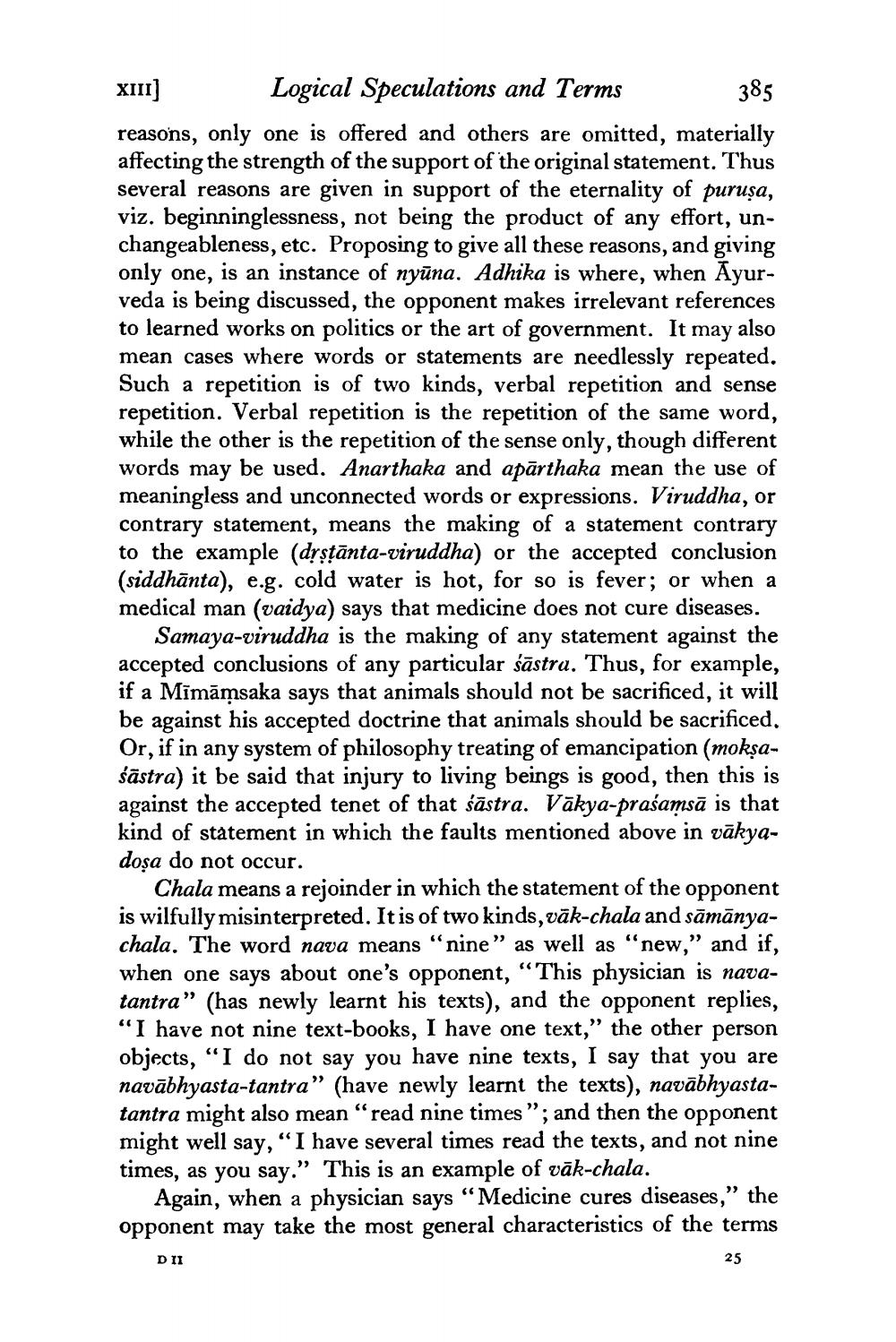________________
XIII] Logical Speculations and Terms 385 reasons, only one is offered and others are omitted, materially affecting the strength of the support of the original statement. Thus several reasons are given in support of the eternality of puruşa, viz. beginninglessness, not being the product of any effort, unchangeableness, etc. Proposing to give all these reasons, and giving only one, is an instance of nyūna. Adhika is where, when Ayurveda is being discussed, the opponent makes irrelevant references to learned works on politics or the art of government. It may also mean cases where words or statements are needlessly repeated. Such a repetition is of two kinds, verbal repetition and sense repetition. Verbal repetition is the repetition of the same word, while the other is the repetition of the sense only, though different words may be used. Anarthaka and apārthaka mean the use of meaningless and unconnected words or expressions. Viruddha, or contrary statement, means the making of a statement contrary to the example (dystānta-viruddha) or the accepted conclusion (siddhānta), e.g. cold water is hot, for so is fever; or when a medical man (vaidya) says that medicine does not cure diseases.
Samaya-viruddha is the making of any statement against the accepted conclusions of any particular śāstra. Thus, for example, if a Mīmāmsaka says that animals should not be sacrificed, it will be against his accepted doctrine that animals should be sacrificed. Or, if in any system of philosophy treating of emancipation (mokşaśāstra) it be said that injury to living beings is good, then this is against the accepted tenet of that śāstra. Vākya-prašamsā is that kind of statement in which the faults mentioned above in vākyadosa do not occur.
Chala means a rejoinder in which the statement of the opponent is wilfully misinterpreted. It is of two kinds, vāk-chala and sāmānyachala. The word nava means "nine” as well as "new," and if, when one says about one's opponent, “This physician is navatantra” (has newly learnt his texts), and the opponent replies, “I have not nine text-books, I have one text," the other person objects, “I do not say you have nine texts, I say that you are navābhyasta-tantra" (have newly learnt the texts), navābhyastatantra might also mean “read nine times"; and then the opponent might well say, “I have several times read the texts, and not nine times, as you say.” This is an example of vāk-chala.
Again, when a physician says “Medicine cures diseases,” the opponent may take the most general characteristics of the terms
DII
25




